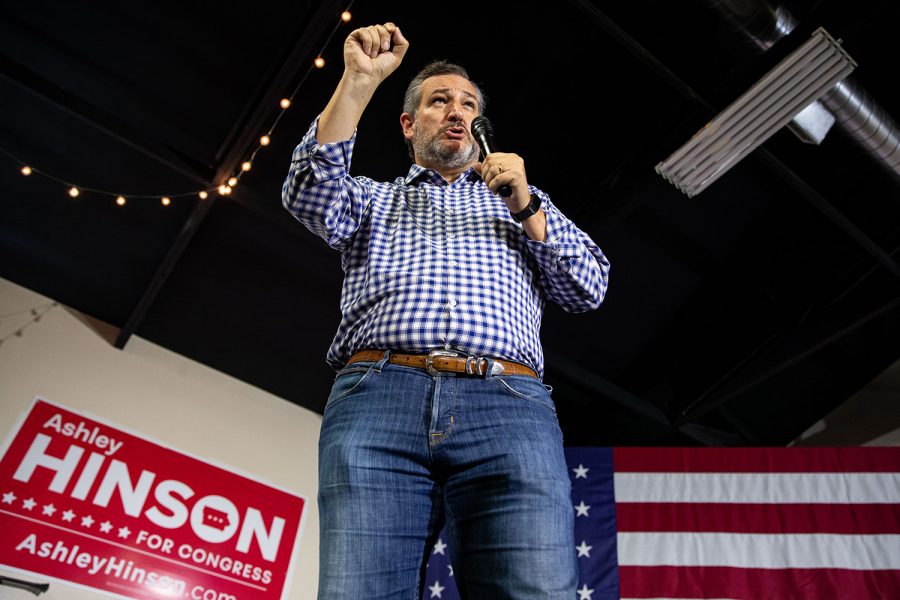Opinion | Flipping the narrative on climate change
If we are ever going to take the necessary action to stop climate change, we must first reverse the blame on to those who are really causing it.
U.S. Sen. Ted Cruz (R-Texas) speaks to a crowd on Saturday, Aug. 28, 2021 at Ashley Hinson’s BBQ Bash at Linn County Fairgrounds. In the U.S. House of Representatives for Iowa, three out of four are Republican and Cruz hopes all four will be Republican for 2022.
June 27, 2023
The threat the climate crisis poses is catastrophic. Yet, as our window of time to act closes, the U.S. has yet to take serious measures to fight climate change.
More than 99 percent of the scientific community states climate change is real and human-caused. Yet, 14 percent of American adults think climate change is not happening, 30 percent say it’s caused naturally, and 34 percent are not worried about its effects.
American’s lackluster response to the climate crisis can be blamed on both the denial of climate change by those in power and the promotion of individual sustainability over corporate accountability.
Individuals who wield power have a great deal of influence over the views of voters and often will manipulate that power for personal gain.
For example, Sen. Ted Cruz, R-Texas, is a prominent climate change denialist. In 2015, Cruz attempted to cast doubt on the seriousness of climate change, saying that “the scientific evidence doesn’t support global warming.”
Between 2015 and 2020, Cruz accepted over $134,000 in donations from oil and gas PACs. His interest is purely on the side of those causing climate change.
This misleading propaganda is not just utilized by politicians. It is very frequently used by oil and gas companies themselves.
While some politicians or corporations may deny the existence of climate change entirely, some employ a more calculated strategy: They don’t deny the worsening environment but shift the blame onto everyday people.
For example, companies like BP helped popularize the term “carbon footprint” and employed a “carbon footprint calculator” to encourage individuals to calculate how much carbon they emit on a daily basis. This strategy puts it in the mind of the consumers that their everyday actions are the biggest cause of environmental problems.
There is absolutely nothing wrong with individuals being mindful of and practicing sustainability, and everyone should do it. But when 100 corporations are responsible for 70 percent of carbon emissions, the focus when fighting climate change must be on these massive, polluting corporations before anything else.
There has been so little legislation to fight climate change that even insufficient legislation is celebrated as a landmark.
The recently passed Inflation Reduction Act promises to decrease carbon emission levels by 40 percent by 2030 and achieve net zero by 2050. While this is certainly a positive step forward, the bill also guarantees new drilling opportunities in the Gulf of Mexico and Alaska.
When it is oil and gas companies that have everything to lose from the U.S. going net zero on carbon emissions, any legislation that has their backing cannot be trusted or considered sufficient.
If we are ever going to tackle the issue of climate change, it will be because we flipped the narrative, held those responsible accountable, and demanded better from our elected representatives.
Columns reflect the opinions of the authors and are not necessarily those of the Editorial Board, The Daily Iowan, or other organizations in which the author may be involved.















